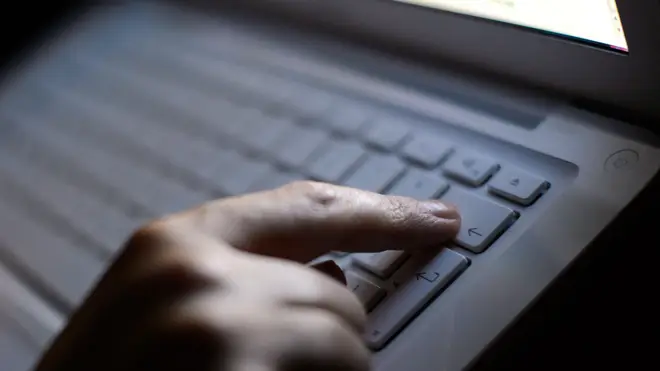
Clive Bull 1am - 4am
12 November 2020, 10:24

The charity has warned offenders are using platforms like Instagram to contact youngsters who are currently spending more time on the internet.
The Government is being urged to bring forward “tough” online harms legislation after a children’s charity warned lockdown had created a “perfect storm” for offenders to groom youngsters.
Research by the NSPCC found more than 1,000 cases of sexual communication with a child were recorded between April and June this year.
The charity said the figures show Instagram is increasingly the platform of choice for offenders and it was used to make contact in 37% of cases, up 8% on the previous three years.
The NSPCC said the coronavirus pandemic had created opportunity for online offenders because lockdown rules mean children are spending more time on the internet, and are using platforms the charity said are still failing to adequately protect users.
The charity’s chief executive Peter Wanless has called on Prime Minister Boris Johnson to speed up the implementation of the online harms regulation and ensure it “holds tech companies and bosses financially and criminally responsible” for breaches of care.
The Online Harms Bill is expected before Parliament next year after several delays which have frustrated campaigners.
It is expected to propose the introduction of an independent regulator for the tech sector and a duty of care which platforms must agree to.
Mr Wanless said: “Families have long paid the price for big tech’s failure to protect children from abuse, but the Prime Minister has the chance to turn the tide and put responsibility on firms to clean up the mess they created.
“As the pandemic intensifies the threat children face online, bold and ambitious action is needed in the form of a world-leading Online Harms Bill.
“This means legislation that is tough on online crimes against children and regulation that holds tech companies and bosses financially and criminally responsible if they continue to turn a blind eye to entirely avoidable harm.”
According to the NSPCC data, gathered from requests using freedom of information laws to 38 police forces in England and Wales, 1,220 offences of sexual communication with a child were recorded during the first three months of lockdown earlier this year.
Facebook-owned apps, which includes the main Facebook app, Instagram and WhatsApp, were used in 51% of the cases where the method of communication was recorded, while Snapchat was used in 20% of the cases where data was available.
The National Police Chiefs’ Council’s lead for child protection, Chief Constable Simon Bailey, said: “In an increasingly digitally-connected world, perpetrators of child abuse are conducting more and more of their activities online.
“Offenders use the internet to access and share child abuse images, and to make contact with and groom children directly.
“Although online regulation is difficult, it is clear that it is the only way to ensure tech and social media companies will take their responsibilities seriously.
“The Online Harms White Paper, published in February 2020, proposes a new regulatory framework and duty of care which have the potential to be of real use in the fight against child exploitation.”